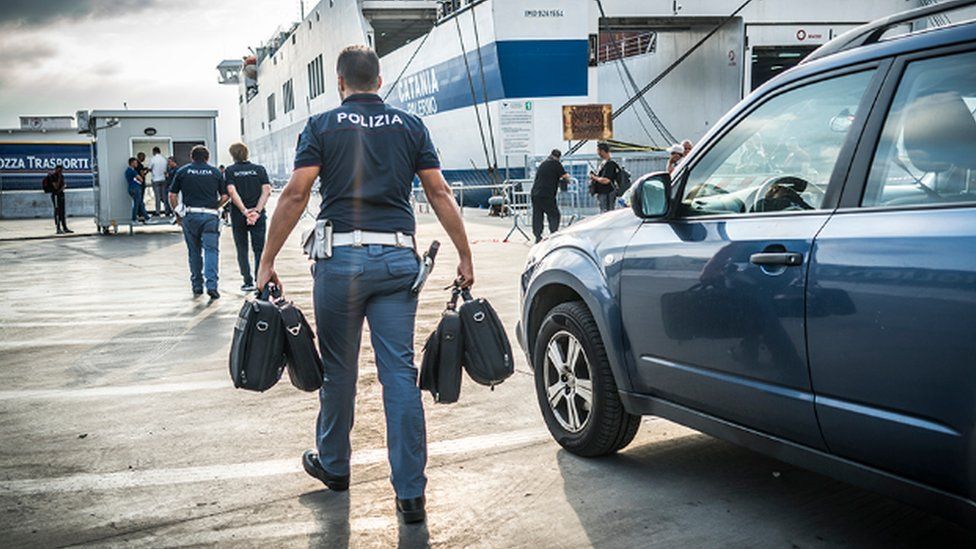Interpol detects foreign terror suspects in Mediterranean
- Published

Interpol says it has detected more than a dozen suspected "foreign terrorist fighters" crossing the Mediterranean Sea during a six-week operation.
The international police organisation carried out more than 1.2 million searches at ports in six countries between 24 July and 8 September.
Operation Neptune II focussed on busy tourist routes between North Africa and southern Europe.
It resulted in 31 active investigative leads, Interpol says.
The current system, French President Emmanuel Macron said, was particularly unfair on Italy.
Only this week, hundreds of migrants arrived in Italy and Greece, many travelling by boat from Libya and Turkey.
What did Interpol say?
During the operation Interpol used its vast database to look for signs of illegal activity such as stolen travel documents and vehicles.
Officials from Algeria, France, Italy, Morocco, Spain and Tunisia carried out the searches at seven ports in the area.
"When information is shared between regions via Interpol's networks at the global level, every check, border control or random search is a potential break in a terror investigation," said Interpol's Secretary General Jürgen Stock.
"This is how Interpol acts as a global tripwire, by disrupting the movement of individuals linked to criminal and terrorist activities," Mr Stock added.
Interpol has not revealed the nationalities of the suspected foreign militants or the groups they were linked to.
- Published24 November 2017
- Published26 February 2020
- Published17 September 2019
- Published16 September 2019